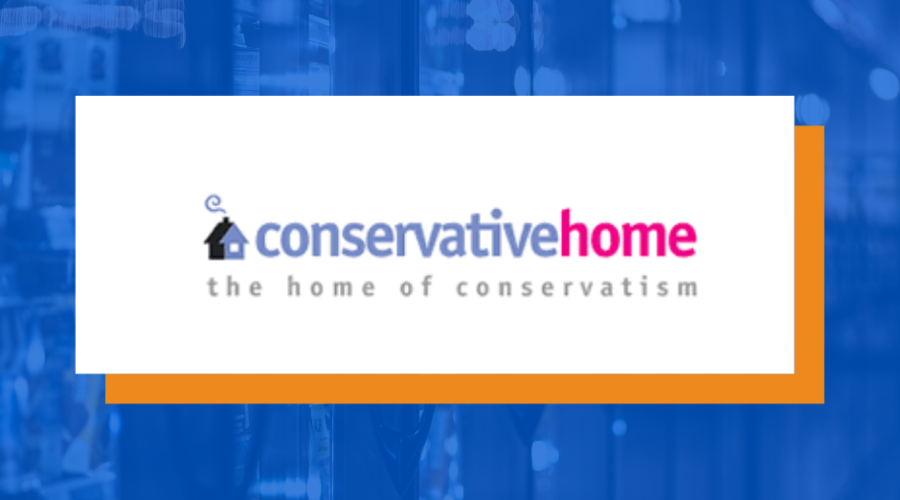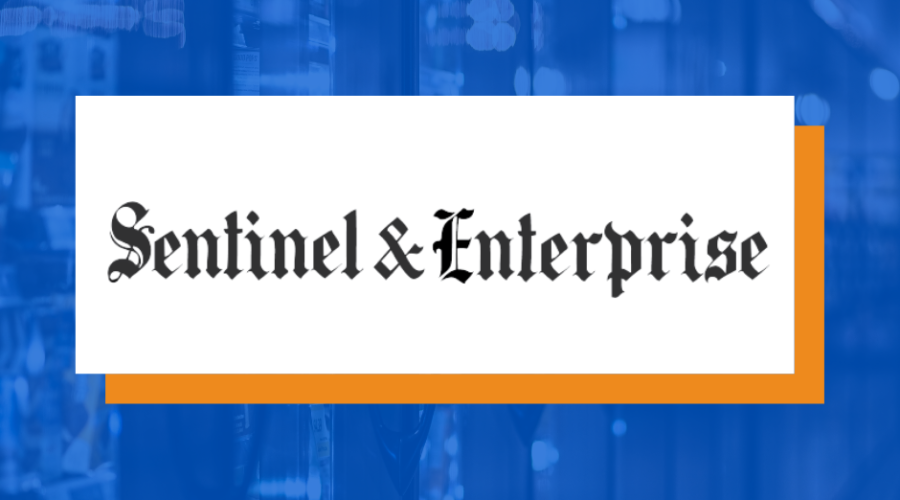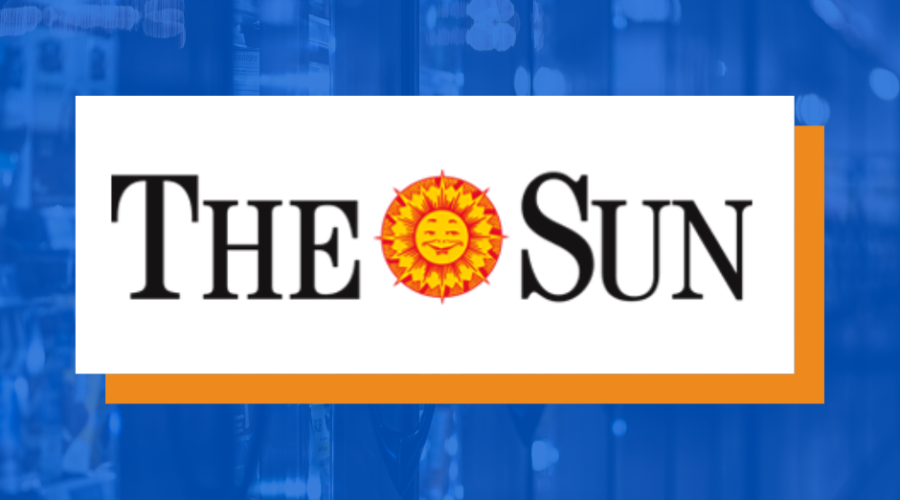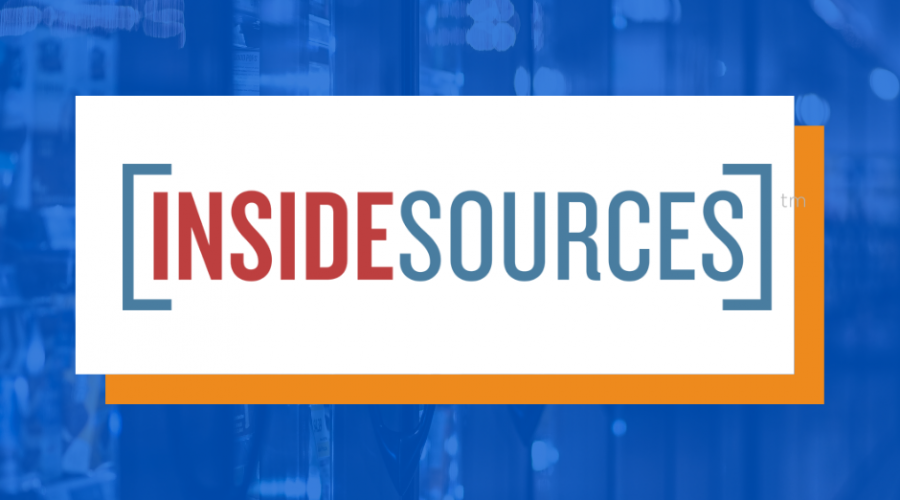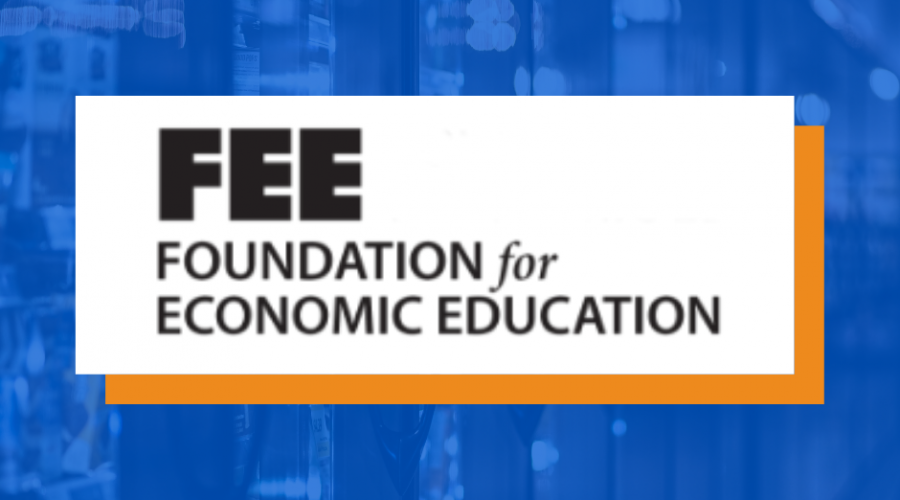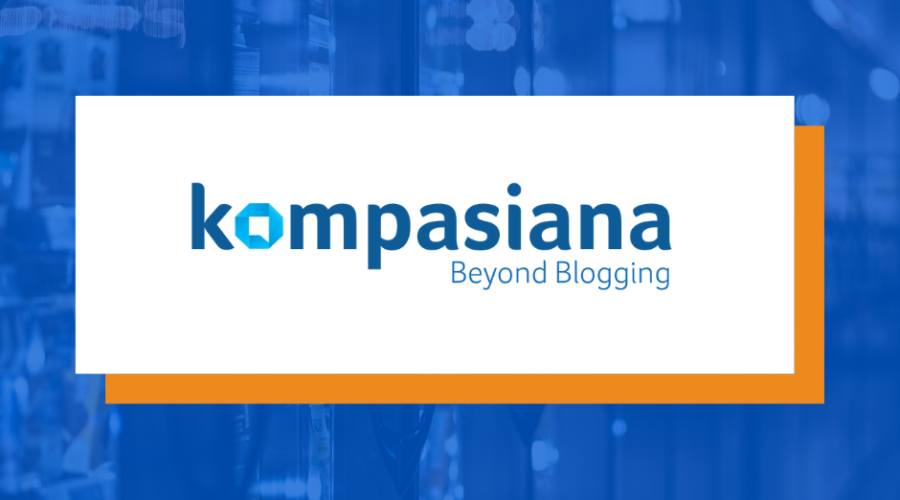- About Us
- Media
- Research
- Policy Areas
- Events
- Past Events
- Sweden is More Than Just IKEA
- The Path Forward: Liberal Democracies and Technology Policy
- Coping with uncertainty in a post-pandemic world
- FDA’s Menthol Melee: A CCC Session
- CANNABIS CONCLAVE BY CONSUMER CHOICE CENTER®
- Cannabis Conclave 2020
- Cannabis Conclave 2019
- Telecom and Media Innovation Summit
- Brand Freedom Day
- Media Roundtables: Does the WHO act
in the interest of Global Public Health?
- Past Events
- Donate

Search for: section 230
Dowden’s latest task? Regulating the internet. Here’s what Australia can teach us about that challenge.
Culture secretary Oliver Dowden finds himself burdened with an almighty task: regulating the internet. His new ‘Digital Markets Unit’, set to form part of the existing Competitions and Markets Authority, will be the quango in charge of regulating the social media giants. Dowden, like the rest of us, is now trying to discern what can be learned by rummaging through the rubble left behind by the regulatory punch-up between Facebook and the Australian government over a new law forcing online platforms to pay news companies in order to host links to their content.
Google acquiesced immediately, agreeing to government-mandated negotiations with news producers. But Facebook looked ready to put up a fight, following through on its threat to axe all news content from its Australian services. It wasn’t long, though, before Mark Zuckerberg backed down, unblocked the Facebook pages of Australian newspapers and, through gritted teeth, agreed to set up a direct debit to Rupert Murdoch.
The drama down under has been met with a mixed response around the world, but it is broadly consistent with the trend of governments shifting towards more and more harmful and intrusive interference in the technology sector, directly undermining consumers’ interests and lining Murdoch’s pockets. The EU, for one, is keen to get stuck in, disregarding the status quo and unveiling its ambitious plan to keep tabs on the tech giants.
In the US, the situation is rather different. Some conspiracy theorists – the type who continue to believe that Donald Trump is the rightful president of the United States – like to allege that the infamous Section 230, the item of US legislation which effectively regulates social media there, was crafted in cahoots with big tech lobbyists as a favour to bigwigs at Facebook, Google, Twitter, and so on. In reality, Section 230 was passed as part of the Communications Decency Act in 1996, long before any of those companies existed.
Wildly overhyped by many as a grand DC-Silicon Valley conspiracy to shut down the right’s online presence, Section 230 is actually very short and very simple. It is, in fact, just 26 words long: “No provider or user of an interactive computer service shall be treated as the publisher or speaker of any information provided by another information content provider.”
Not only is this a good starting point from which to go about regulating the internet – it is the only workable starting point. If the opposite were true – if platforms were treated as publishers and held liable for the content posted by their users – competition would suffer immensely. Incumbent giants like Facebook would have no problem employing a small army of content moderators to insulate themselves, solidifying their position at the top of the food chain. Meanwhile, smaller companies – the Zuckerbergs of tomorrow – would be unable to keep up, resulting in a grinding halt to innovation and competition.
Another unintended consequence – a clear theme when it comes to undue government meddling in complex matters – would be that vibrant online spaces would quickly become unusable as companies scramble to moderate platforms to within an inch of their lives in order to inoculate themselves against legal peril.
Even with the protections currently in place, it is plain how awful platforms are at moderating content. There are thousands of examples of well-intentioned moderation gone wrong. In January, the Entrepreneurs Network’s Sam Dumitriu found himself plonked in Twitter jail for a tweet containing the words “vaccine” and “microchip” in an attempt to call out a NIMBY’s faulty logic. Abandoning the fundamental Section 230 provision would only make this problem much, much worse by forcing platforms to moderate much more aggressively than they already do.
Centralisation of policy in this area fails consistently whether it comes from governments or the private sector because it is necessarily arbitrary and prone to human error. When Facebook tried to block Australian news outlets, it also accidentally barred the UK-based output of Sky News and the Telegraph, both of which have Australian namesakes. State-sanctioned centralisation of policy, though, is all the more dangerous, especially now that governments seem content to tear up the rulebook and run riot over the norms of the industry almost at random, resulting in interventions which are both ineffectual and harmful.
The Australian intervention in the market is so arbitrary that it could easily have been the other way around: forcing News Corp to pay Facebook for the privilege of having its content shared freely by people all over the world. Perhaps the policy would even make more sense that way round. If someone was offering news outlets a promotional package with a reach comparable to Facebook’s usership, the value of that package on the ad market would be enormous.
Making people pay to have their links shared makes no sense at all. Never in the history of the internet has anybody had to pay to share a link. In fact, the way the internet works is precisely the opposite: individuals and companies regularly fork out large sums of money in order to put their links on more people’s screens.
If you’d said to a newspaper editor twenty years ago that they would soon have free access to virtual networks where worldwide promotion of their content would be powered by organic sharing, they would have leapt for joy. A regulator coming along and decreeing that the provider of that free service now owes money to the newspaper editor is patently ludicrous.
That is not to say, however, that there is no role for a regulator to play. But whether or not the Digital Markets Unit will manage to avoid the minefield of over-regulation remains to be seen. As things stand, there is a very real danger that we might slip down that road. Matt Hancock enthusiastically endorsed the Australian government’s approach, and Oliver Dowden has reportedly been chatting with his counterparts down under about this topic.
The humdrum of discourse over this policy area was already growing, but the Australia-Facebook debacle has ignited it. The stars have aligned such that 2021 is the long-awaited point when the world’s governments finally attempt to reckon with the tech behemoths. From the US to Brussels, from Australia to the Baltics, the amount of attention being paid to this issue is booming.
As UK government policy begins to take shape, expect to see fronts forming between different factions within the Conservative Party on this issue. When it comes to material consequences in Britain, it is not yet clear what all this will mean. The Digital Markets Unit could yet be a hero or a villain.
Originally published here.
Latest round of online deplatforming shows why we need increased competition and decentralization
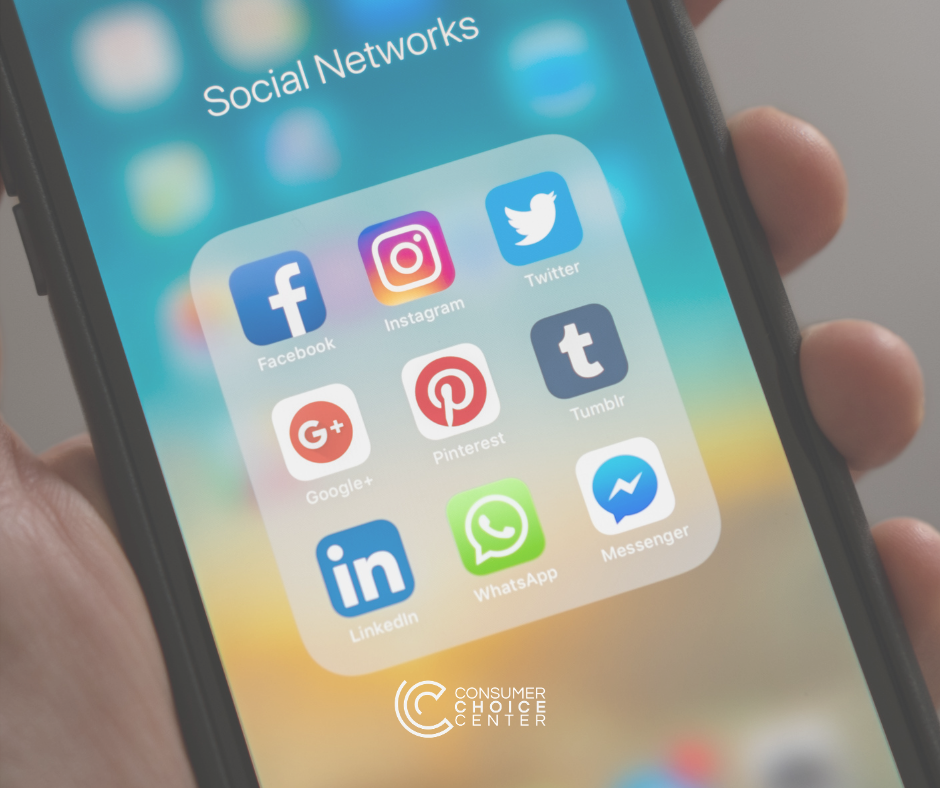
Another week means another politically-charged rampage of deplatforming of social media profiles and entire social media networks.
Following the storming of the U.S. Capitol by some of his supporters, President Trump was promptly suspended from Twitter and Facebook and later dozens of Internet services including Shopify and Twitch.
Even the image-sharing site Pinterest, famous for recipes and DIY project presentations, has banned Trump and any mention of contesting the 2020 Election. He’ll have to go without sourdough recipes and needlework templates once he’s out of office.
Beyond Trump, entire social media networks have also been put in the crosshairs following the troubling incursion on Capitol Hill. The conservative platform Parler, a refuge for social media dissidents, has since had its app pulled from the Google and Apple stores and had their hosting servers suspended by Amazon’s web service company AWS.
This pattern of removing unsavory profiles or websites isn’t just a 2021 phenomenon. The whistleblower website Wikileaks – whose founder Julian Assange remains in prison without bail in the UK awaiting extradition to the United States – was similarly removed from Amazon’s servers in 2012, as well as blacklisted by Visa, Mastercard, PayPal, and their DNS provider. Documents reveal both public and private pressure by then U.S. senator and Intelligence Committee Chairman Joe Lieberman was instrumental in choking Wikileaks off from these services.
Then it was politicians pressuring companies to silence a private organization. Now, it’s private organizations urging companies to silence politicians.
However the pendulum swings, it’s entirely reasonable for companies that provide services to consumers and institutions to respond quickly to avoid risk. Whether it’s due to governmental decree or public backlash, firms must respond to incentives that ensure their success and survival.
Whether it’s Facebook, Twitter, Gab, or Parler, they can only exist and thrive if they fulfill the wishes and demands of their users, and increasingly to the political and social pressures placed on them by a cacophony of powerful forces.
It’s an impossible tightrope.
It is clear that many of these companies have and will continue to make bad business decisions based on either politics or perception of bias. They are far from perfect.
The only true way we can ensure a healthy balance of information and services provided by these companies to their consumers is by promoting competition and decentralization.
Having diverse alternative services to host servers, provide social networks, and allow people to communicate remains in the best interest of all users and consumers.
Such a mantra is difficult to hold in today’s hostile ideological battleground inflated by Silicon Valley, Washington, and hostile actors in Bejing and Moscow, but it is necessary.
In the realm of policy, we should be wary of proposed solutions that aim to cut off some services at the expense of others.
Repealing Section 230 of the Communications Decency Act, for example, would be incredibly harmful to users and firms alike. If platforms become legally liable for user content, it would essentially turn innovative tech companies into risk-averting insurance companies that occasionally offer data services. That would be terrible for innovation and user experience.
And considering the politically charged nature of our current discourse, anyone could find a reason to cancel you or an organization you hold dear – meaning you’re more at risk for being deplatformed.
At the same time, axing Section 230 would empower large firms and institutions that already have the resources to manage content policing and legal issues at scale, locking out many start-ups and aspiring competitors who otherwise would have been able to thrive.
When we think of the towering power of Big Tech and Big Government, some things can be true all at the same time. It can be a bad idea to use antitrust law to break up tech firms as it will deprive consumers of choice, just as these companies are guilty of making bad business decisions that will hurt their user base. How we respond to that will determine how consumers will continue to be able to use online services going forward.
All the while, every individual Internet user and organization has it in their power to use competitive and diverse services. Anyone can start up an instance of Mastodon (as I have done), a decentralized micro-blogging service, host a private web server on a Raspberry Pi (coming soon), or accept Bitcoin rather than credit cards.
Thanks to competition and innovation, we have consumer choice. The question is, though, if we’re courageous enough to use them.
Yaël Ossowski is deputy director at the Consumer Choice Center.
Halting targeted advertising kills industries and dumbs down tech
When we hear gripes about social media, one of the top concerns is targeted advertising.
On any given day, this type of segmented advertising is used by the local hair salon searching for new clients, an environmental group asking for signatures on a petition and a city council candidate seeking your vote. These are all important and vital for our civil society.
These groups pay to get your attention on social media because it achieves something essential: to generate business, to advocate for social causes or win elections. This is facilitated by the unique platforms where we post and share information.
And because social media is usually free, accepting this advertising allows platforms to grow and scale to continue providing value to users. That is the balance that most of us understand. Some people are mildly annoyed, but others prefer advertising that caters to their interests.
Unfortunately, that distinction has given fodder to activists and politicians who want to ban this style of advertising to limit the ability to spread information on social media.
The latest scandal du jour, as one can guess, revolves around the 2020 elections and how political forces targeted would-be voters on social media.
Using Twitter and Facebook proved effective for both the Biden and Trump campaigns, up until both platforms halted political advertising. Hundreds of millions of dollars were spent and tens of millions of voters were reached.
In a hearing on Tuesday, senators on the Judiciary Committee excoriated Twitter CEO Jack Dorsey and Facebook CEO Mark Zuckerberg for their proprietary algorithms that drive engagement and sell ads.
Senators took turns grinding their axes, lodging complaints about content moderation, targeted advertising and market power.
The policy remedies discussed have so far been two-pronged, either using antitrust laws to break up the social media firms or rewriting Section 230 of the Communications Decency Act that currently treats online outlets as platforms rather than publishers, not making them liable for the content shared on their pages.
In either case, politicians in Washington get it wrong.
Action in either direction would end up being harmful to both consumers and small businesses, and dumb down the great innovative tech sector that is the world’s envy.
Social media platforms have grown to be popular because they empower users to speak their minds and be profitable because they enable small businesses and groups to find current and future customers. That is a win-win for society.
If targeted advertising is dismantled online as some hope, it would severely restrict the options for entrepreneurs and social groups to find supporters and clients.
That may sound good in theory, but in practice it means stopping advertising options for environmental groups, restaurants hoping to deliver food during continued lockdowns and more.
Regulating innovative technology because of serious legal and health concerns is warranted but stopping information and unique algorithms that give us what we want is a step too far.
We must face the fact that social media has become the new marketplace where we seek information. If we legislate and ban specific methods of sharing information on products and services online, this reduces consumer choice and chokes off entire industries.
This harms everyone.
More than harmful, it is also based on the false assumption that adults are not intelligent enough to understand or interpret advertising. This is both paternalistic and wrong.
Of course, ads are annoying for those who do not want them. And, luckily, the same technology that created targeted micro-advertising has also spawned ad-blocking browser plugins, Virtual Private Networks, and private browsing modes that are simple and easy to use for those who want them.
Thanks to technology, everything we do online has gotten more efficient, more effective and less costly. It has empowered nonprofits like mine, given a voice to millions of entrepreneurs and offered untold value to users around the world.
As advocates for a free and open internet, we must continue to uphold innovation and ensure it is protected from those who wish to limit its potential.
Originally published here.
The Sun: Halting targeted advertising kills industries and dumbs down tech
When we hear gripes about social media, one of the top concerns is targeted advertising.
On any given day, this type of segmented advertising is used by the local hair salon searching for new clients, an environmental group asking for signatures on a petition and a city council candidate seeking your vote. These are all important and vital for our civil society.
These groups pay to get your attention on social media because it achieves something essential: to generate business, to advocate for social causes or win elections. This is facilitated by the unique platforms where we post and share information.
And because social media is usually free, accepting this advertising allows platforms to grow and scale to continue providing value to users. That is the balance that most of us understand. Some people are mildly annoyed, but others prefer advertising that caters to their interests.
Unfortunately, that distinction has given fodder to activists and politicians who want to ban this style of advertising to limit the ability to spread information on social media.
The latest scandal du jour, as one can guess, revolves around the 2020 elections and how political forces targeted would-be voters on social media.
Using Twitter and Facebook proved effective for both the Biden and Trump campaigns, up until both platforms halted political advertising. Hundreds of millions of dollars were spent and tens of millions of voters were reached.
In a hearing on Tuesday, senators on the Judiciary Committee excoriated Twitter CEO Jack Dorsey and Facebook CEO Mark Zuckerberg for their proprietary algorithms that drive engagement and sell ads.
Senators took turns grinding their axes, lodging complaints about content moderation, targeted advertising and market power.
The policy remedies discussed have so far been two-pronged, either using antitrust laws to break up the social media firms or rewriting Section 230 of the Communications Decency Act that currently treats online outlets as platforms rather than publishers, not making them liable for the content shared on their pages.
In either case, politicians in Washington get it wrong.
Action in either direction would end up being harmful to both consumers and small businesses, and dumb down the great innovative tech sector that is the world’s envy.
Social media platforms have grown to be popular because they empower users to speak their minds and be profitable because they enable small businesses and groups to find current and future customers. That is a win-win for society.
If targeted advertising is dismantled online as some hope, it would severely restrict the options for entrepreneurs and social groups to find supporters and clients.
That may sound good in theory, but in practice it means stopping advertising options for environmental groups, restaurants hoping to deliver food during continued lockdowns and more.
Regulating innovative technology because of serious legal and health concerns is warranted but stopping information and unique algorithms that give us what we want is a step too far.
We must face the fact that social media has become the new marketplace where we seek information. If we legislate and ban specific methods of sharing information on products and services online, this reduces consumer choice and chokes off entire industries.
This harms everyone.
More than harmful, it is also based on the false assumption that adults are not intelligent enough to understand or interpret advertising. This is both paternalistic and wrong.
Of course, ads are annoying for those who do not want them. And, luckily, the same technology that created targeted micro-advertising has also spawned ad-blocking browser plugins, Virtual Private Networks, and private browsing modes that are simple and easy to use for those who want them.
Thanks to technology, everything we do online has gotten more efficient, more effective and less costly. It has empowered nonprofits like mine, given a voice to millions of entrepreneurs and offered untold value to users around the world.
As advocates for a free and open internet, we must continue to uphold innovation and ensure it is protected from those who wish to limit its potential.
Originally published here.
Halting Targeted Advertising Kills Industries and Dumbs Down Tech
When we hear gripes about social media, one of the top concerns is targeted advertising.
On any given day, this type of segmented advertising is used by the local hair salon searching for new clients, an environmental group asking for signatures on a petition and a city council candidate seeking your vote. These are all important and vital for our civil society.
These groups pay to get your attention on social media because it achieves something essential: to generate business, to advocate for social causes or win elections. This is facilitated by the unique platforms where we post and share information.
And because social media is usually free, accepting this advertising allows platforms to grow and scale to continue providing value to users. That is the balance that most of us understand. Some people are mildly annoyed, but others prefer advertising that caters to their interests.
Unfortunately, that distinction has given fodder to activists and politicians who want to ban this style of advertising to limit the ability to spread information on social media.
The latest scandal du jour, as one can guess, revolves around the 2020 elections and how political forces targeted would-be voters on social media.
Using Twitter and Facebook proved effective for both the Biden and Trump campaigns, up until both platforms halted political advertising. Hundreds of millions of dollars were spent and tens of millions of voters were reached.
In a hearing on Tuesday, senators on the Judiciary Committee excoriated Twitter CEO Jack Dorsey and Facebook CEO Mark Zuckerberg for their proprietary algorithms that drive engagement and sell ads.
Senators took turns grinding their axes, lodging complaints about content moderation, targeted advertising and market power.
The policy remedies discussed have so far been two-pronged, either using antitrust laws to break up the social media firms or rewriting Section 230 of the Communications Decency Act that currently treats online outlets as platforms rather than publishers, not making them liable for the content shared on their pages.
In either case, politicians in Washington get it wrong.
Action in either direction would end up being harmful to both consumers and small businesses, and dumb down the great innovative tech sector that is the world’s envy.
Social media platforms have grown to be popular because they empower users to speak their minds and be profitable because they enable small businesses and groups to find current and future customers. That is a win-win for society.
If targeted advertising is dismantled online as some hope, it would severely restrict the options for entrepreneurs and social groups to find supporters and clients.
That may sound good in theory, but in practice it means stopping advertising options for environmental groups, restaurants hoping to deliver food during continued lockdowns and more.
Regulating innovative technology because of serious legal and health concerns is warranted but stopping information and unique algorithms that give us what we want is a step too far.
We must face the fact that social media has become the new marketplace where we seek information. If we legislate and ban specific methods of sharing information on products and services online, this reduces consumer choice and chokes off entire industries.
This harms everyone.
More than harmful, it is also based on the false assumption that adults are not intelligent enough to understand or interpret advertising. This is both paternalistic and wrong.
Of course, ads are annoying for those who do not want them. And, luckily, the same technology that created targeted micro-advertising has also spawned ad-blocking browser plugins, Virtual Private Networks, and private browsing modes that are simple and easy to use for those who want them.
Thanks to technology, everything we do online has gotten more efficient, more effective and less costly. It has empowered nonprofits like mine, given a voice to millions of entrepreneurs and offered untold value to users around the world.
As advocates for a free and open internet, we must continue to uphold innovation and ensure it is protected from those that wish to limit its potential.
Originally published here.
How Not to Respond to Alarming Social Media Censorship
Protecting a free and open internet means not using punitive regulations or policies to hamstring social networks because of the scandal of the day.
Call it election interference, censorship, or simple editorializing, but Twitter and Facebook’s throttling of several New York Post articles this week has drawn lots of criticism.
The stories allege that Hunter Biden, former Vice President Joe Biden’s son, introduced Ukrainian energy adviser Vadym Pozharskyi to his father after receiving a cushy $50,000 a month board seat at the company Burisma. (Other outlets have contested the report).
There is no question that the social networks in question made a bad call. Disabling the link on the various platforms made even more people seek it out, creating a “Streisand Effect” of mass proportions.
But the content of the articles isn’t what really matters.
The reaction to the New York Post report reveals just how much pressure is put on social networks to perform roles far beyond what they were intended for. We want them to simultaneously police speech online, keep the networks free for open discussion, and be mindful of “fake news” that spreads rapidly.
So, it is important to understand why Facebook and Twitter felt they had to censor the story in the first place—and why all of us are actually to blame. For the last several years, campaigners, activists, and politicians have primed us all to accept the byzantine expectations and regulations put on social networks.
From Netflix documentaries such as The Social Dilemma and The Great Hack to the criticisms of “surveillance capitalism,” many voices are calling for further regulation of social media networks.
Some on the Right smirk as Sen. Josh Hawley pens legislation to repeal Section 230 of the Communications Decency Act or to ban “infinite scrolling” on social media apps. Meanwhile, some on the Left cheer as technology CEOs are dragged before congressional committees and castigated for “allowing” Trump to win in 2016.
This week, it was revealed that the New York State Department of Financial Services wants a “dedicated regulator” to oversee social media platforms. Other states will likely follow suit.
But what we’re all too loath to admit is that these firms do what any of us would do when under scrutiny: they pivot, they engage in damage control, and they aim to please those with pitchforks outside their doors. It’s the same whether it’s Black Lives Matter or President Trump.
Facebook has committed to ending all political advertising online (hurting non-profit advocacy groups like mine) and Twitter already implemented a similar policy last year, lauded by political figures such as Hillary Clinton and Andrew Yang.
Of course, when tech giants censor or delete stories that we perceive to advance or hurt our political “team,” we are all up in arms. But protecting a free and open internet means not using punitive regulations or policies to hamstring social networks because of the scandal of the day.
Internet policy remedies dreamed up in Washington, D.C. will almost always end up hurting those of us who don’t have power or deep pockets. It harms the small businesses that use social networks for advertising, and it sets up more roadblocks for ordinary users who simply want to check in with friends and family.
Big Tech isn’t powerful because it has money, but because it has delivered superior products, those that have left platforms such as AOL, Myspace, and Yahoo in their wake.
Social networks have evolved from places to connect and share information across borders to intellectual and political battlefields where we wage digital wars.
Of course, there should be regulation in some respect. But it should be smart regulation that keeps platforms relatively free and open and provides incentives for future innovation. The powerful platforms of today can afford to comply with cumbersome rules, while new market entrants cannot.
That means that with every new proposal to roll back Section 230 protections or require quasi-governmental fact-checking functions around Election Day, we’re depriving consumers of choice and entrepreneurs of the ability to innovate.
Of course, targeted censorship of certain accounts or stories on social media networks is bad. But policy “solutions” dreamed up by technologically illiterate bureaucrats and power-hungry politicians would no doubt be even worse.
Originally published here.
THE COUNTERFACTUAL: What is WHO doing about ENDS?
Republished from Clivebates.com with the consent of the author
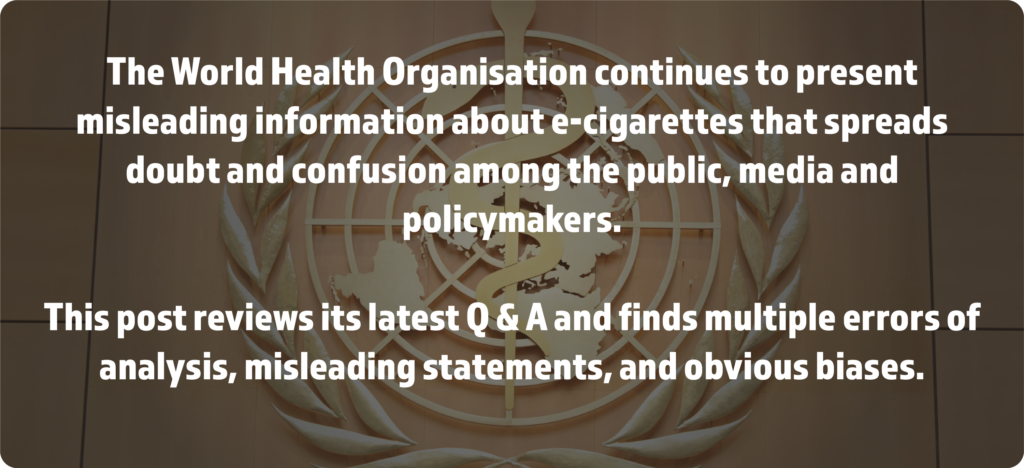
This section really reveals that WHO does very little other than publish prohibitionist propaganda. It is however worthwhile noting that its regrettable dependence on voluntary contributions leaves it exposed to major conflicts of interest.
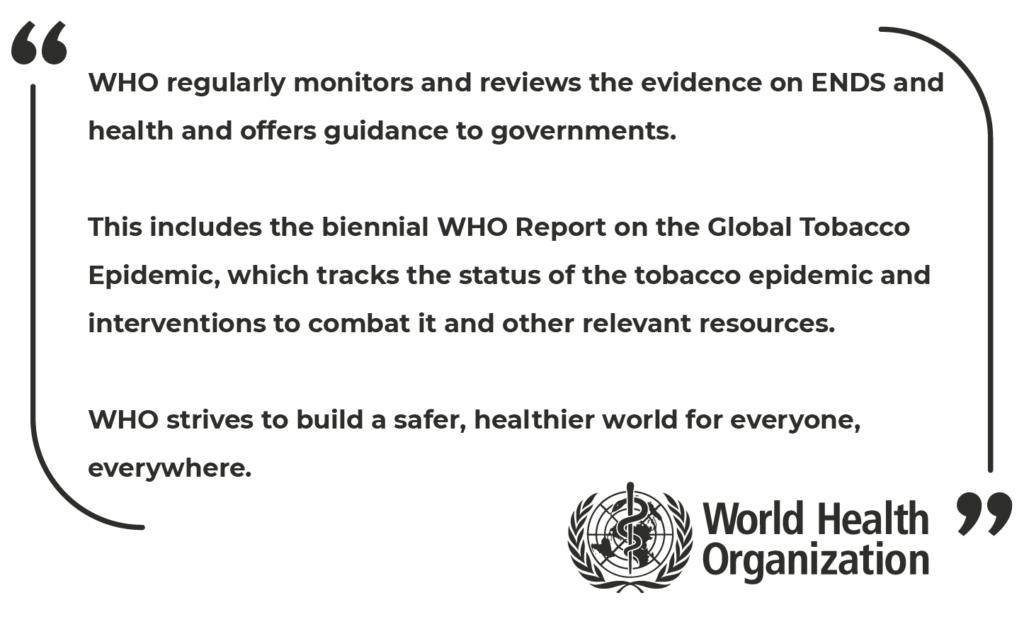
WHO does not pay attention to the evidence. If it did there would be much more discussion of trade-offs and possible benefits and a proportionate and more realistic approach to the risks. In fact, the report highlighted, the WHO Report on the Global Tobacco Epidemic, was “made possible” by the private foundation of the billionaire, Michael Bloomberg, who coincidentally figures prominently in the report despite the claim that it is independent. The report acknowledgements include several anti-vaping activists, some funded by Bloomberg, brought in to do the work.
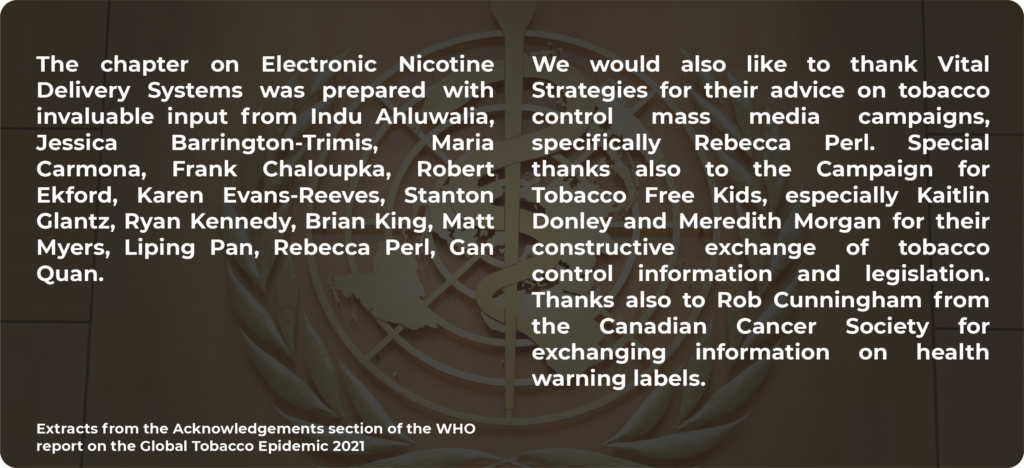
The influence of anti-vaping outsiders on WHO’s finances. Bloomberg’s foundation, Bloomberg Philanthropies, campaigns for vaping prohibitions to the extent possible wherever it works via the work of its grantees. Take the major Bloomberg funding recipient, the Union, for example: and its prohibition policy, Why bans are best. Bloomberg’s approach to evidence and data on tobacco is discussed here: Michael Bloomberg loves data. Except when he doesn’t.
WHO is conflicted by the funding it receives from pro-prohibition Bloomberg Philanthropies ($23m). Then there is also the much larger WHO donor, the Bill and Melinda Gates Foundation ($592m), which supports a range of organisations hostile to tobacco harm reduction. In addition, there are also pharmaceutical companies like GSK ($12.3m) that provide multi-million dollar donations to WHO but take a hostile stance toward e-cigarettes.
Note that this money does not have to be spent on anti-vaping campaigns for the policy position of the donor and the donation to create a conflict. The point is that anti-vaping organisations play a significant role in WHO’s finances.
Written by Clive Bates
Pentingnya Perlindungan Hak Kekayaan Intelektual untuk Membangun National Branding Indonesia
Perlindungan hak kekayaan intelektual merupakan salah satu aspek yang sangat penting dalam pembangunan ekonomi suatu negara. Terlebih lagi, saat ini kita memasuki era ekonomi digital, di mana inovasi dan kreativitas merupakan faktor yang sangat penting untuk memajukan perekonomian.
Adanya perlindungan hak kekayaan intelektual yang kuat tentu merupakan sesuatu yang sangat penting untuk mendorong inovasi dan kreativitas. Melalui perlindungan kekayaan intelektual yang kuat, maka hak para inovator dan produsen untuk bisa menikmati manfaat ekonomi dari karya yang dibuatnya bisa terlindungi.
Bila sebuah negara tidak memiliki kekayaan intelektual yang kuat, maka karya-karya yang dibuat oleh para inovator dan produsen bisa dengan mudah dicuri dan dibajak oleh pihak-pihak yang tidak bertanggung jawab. Dengan demikian, para inovator dan produsen tersebut tidak akan bisa mendapatkan manfaat ekonomi secara penuh dari karya yang dibuatnya.
Dengan demikian, maka insentif seseorang untuk berkarya dan berinovasi juga dapat semakin menurun. Hal ini dikarenakan, manfaat ekonomi hasil kerja keras mereka bisa dengan mudah dicuri dan dimanfaatkan oleh orang lain.
Bila insentif para inovator dan pemilik usaha untuk berkarya dan berinovasi semakin rendah, tentunya hal tersebut akan membawa dampak yang sangat negatif terhadap perekonomian. Dengan demikian, maka akan semakin seidkit pula lapangan kerja yang akan terbuka bagi masyarakat.
Dengan semakin berkurangnya lapangan kerja, tentu juga akan sangat sulit meningkatkan pendapatan masyarakat. Dengan demikian, daya beli masyarakat juga menjadi tidak meningkat, dan hal ini tentunya akan membawa dampak buruh bagi pertumbuhan ekonomi.
Selain itu, semakin terbatasnya ketersediaan lapangan kerja bukan merupakan satu-satunya dampak negatif yang akan ditimbulkan bila para inovator dan pemilik usaha memiliki insentif yang lebih sedikit untuk berinovasi.
Kesempatan kita untuk memperkenalkan berbagai produk hasil karya anak bangsa kepada negara lain juga akan semakin berkurang. Bila kita memiliki kesempatan yang besar untuk memperkenalkan produk-produk karya anak bangsa, tentu hal tersebut juga akan membawa dampak yang sangat positif bagi nation branding Indonesia di mata dunia internasional.
Nation branding sendiri didefinisikan sebagai bagaimana sebuah negara atau tempat mempromosikan dirinya kepada orang lain, khususnya dari luar negeri, untuk berkunjung, berinvestasi, atau membangun reputasi yang baik tentang negara tersebut.
Nation branding membuat sebuah negara mampu untuk menonjolkan dirinya dibandingkan dengan negara-negara tetangganya, sehingga mampu lebih banyak menarik pengunjung untuk datang atau pun investor untuk membawa modal mereka ke negaar tersebut, yang pastinya akan sangat berpotensi meningkatkan perekonomian di negara tersebut (brandfinance.com, 21/10/2019).
Ada banyak contoh yang sangat umum kita kenal terkait dengan nation branding sebuah negara. Misalnya, kita mengenal Jerman merupakan negara dengan teknik industri yang sangat persisi, Jepang sebagai negara yang sangat efisien, dan Italia yang terkenal dengan industri fashion kelas atas (brandfinance.com, 21/10/2019).
Branding yang sangat unik dan positif ini tentu akan sangat berpengaruh pada insentif seseorang untuk mengunjungi atau berinvestasi di negara tersebut.
Nation branding negara-negara tersebut tentu tidak bisa terjadi dalam sekejap, dan salah satu faktor yang memainkan peran yang sangat dominan adalah adanya berbagai industri yang melahirkan berbagai persepsi tersebut, yang akhirnya diterima oleh kalangan internasional.
Jerman sebagai negara dengan teknik industri yang persisi dan luar biasa misalnya, salah satunya bisa dilihat dari berbagai produk otomotif yang dikeluarkan oleh negara tersebut, seperti BMW dan Mercedes Benz.
Sementara itu, Jepang sebagai negara yang sangat efisien bisa dilihat melalui berbagai produk-produk teknologi dan juga otomotif yang berasal dari negara tersebut, seperti mobil-mobil yang simple namun bertahan lama, dan juga teknologi kreatif seperti toilet pintar dengan berbagai macam fitur.
Selain itu, Italia memiliki reputasi sebagai negara dengan cita rasa fashion yang tinggi juga dimunculkan dari berbagai produk fashion dari negara tersebut, seperti Versace, Armani, Prada, dan lain sebagainya (bandungklik.com, 29/6/2021).
Pentingnya adanya perlindungan hak kekayaan intelektual yang kuat untuk membangun nation branding juga merupakan hal yang diakui oleh Kementerian Hukum dan Hak Asasi Manusia (Kemenkumham) Republik Indonesia.
Wamenkumham Eddy Hiariej mengatakan bahwa, salah satu potensi besar dari kekayaan intelektual adalah dapat membentuk identitas atau branding dari bangsa Indonesia. Nation Branding ini memilki potensi untuk meningkatkan daya saing negara kita, untuk mempromosikan kepentingan ekonomi, politik, dan sosial (kemenkumham.go.id, 12/5/2022),
Melalui perlindungan hak kekayaan intelektual yang kuat, kita berpotensi besar bisa meningkatkan berbagai sektor dan industri yang dapat menunjukkan ciri khas dan juga keunggulan kompaatif Indonesia bila dibandingkan dengan negara lain.
Misalnya, berbagai makanan tradisional Indonesia yang sangat beragam, atau berbagai karya seni tradisional seperti batik, yang tentunya memiliki potensi besar sebagai sarana untuk meningkatkan persepsi positif Indonesia di mata orang-orang dari negara lain.
Sebagai penutup, bila kita memiliki perlindungan hak kekayaan intelektual yang kuat, hal ini bisa memberikan insentif lebih besar bagi para pekerja kreatif dan pelaku usaha untuk berkarya dan berinovasi, termasuk diantaranya yang bergerak di bidang kerajinan dan produk-produk tradisional.
Dengan demikian, posisi Indonesia di mata internasional bisa semakin meningkat, yang tentunya akan berpotensi besar membawa dampak yang sangat positif terhadap perekonomian mellaui investasi, turisme, dan lain sebagainya.
Originally published here
- ‹ Previous
- 1
- 2
- 3
- Next ›
